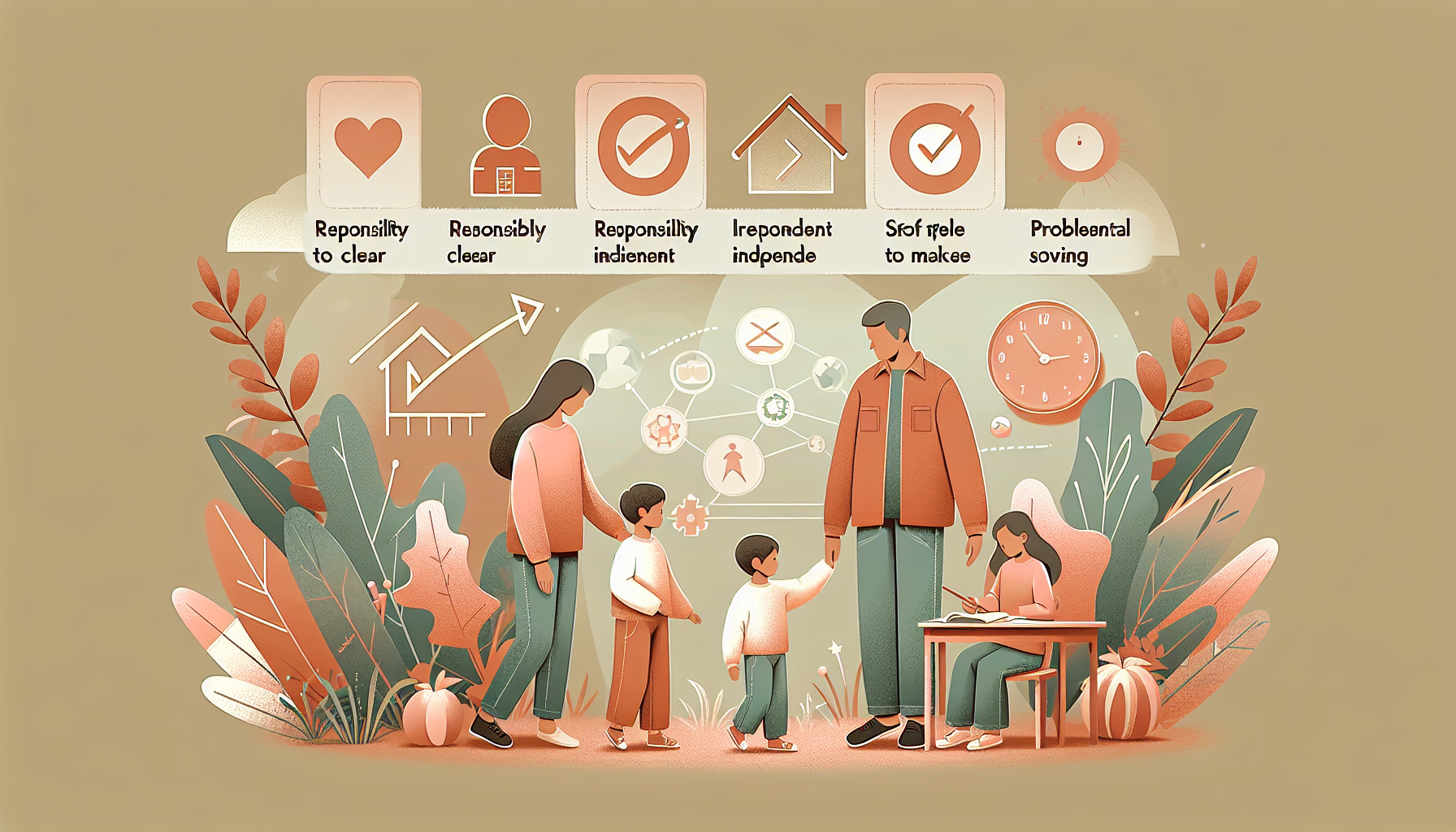Encouraging Children to Be Responsible: A Guide for Parents
As parents, one of our most important roles is teaching responsibility to children. By instilling a sense of accountability early on, we empower them to become independent and capable adults. This journey is not only crucial for their personal growth but also for nurturing a harmonious family environment. In this article, we’ll explore effective parenting strategies to foster responsibility in children, drawing from scientific data and psychological principles.
Main Points
Encouraging children to be responsible involves understanding their psychological needs and providing them with the tools to meet these needs. Cognitive-behavioral therapy (CBT) offers valuable insights into this process, emphasizing the importance of cognitive restructuring—changing the way children think about their responsibilities can lead to positive behavioral changes.
- Need for Safety: Children need to feel safe to explore responsibilities. Ensure they know that it’s okay to make mistakes, as this is a natural part of learning.
- Autonomy: Allow children to make choices appropriate for their age. This helps them feel in control and learn the consequences of their decisions.
- Self-expression: Encourage open communication. Let your children express their thoughts and feelings about their responsibilities, and discuss ways to manage them effectively.
A study published in the Journal of Child Psychology and Psychiatry highlights the importance of a supportive environment in developing a child’s sense of responsibility. When children feel supported and understood, they are more likely to take ownership of their actions.
Practical Recommendations
Here are some simple tips to help parents teach responsibility to children:
- Model Responsible Behavior: Children learn by example. Demonstrate accountability in your actions and decisions.
- Set Clear Expectations: Clearly communicate what is expected of your child in terms of chores and behaviors. Use visual aids like charts to help younger children understand their responsibilities.
- Establish Routines: Consistent routines provide structure, helping children understand when and how to complete their tasks.
- Provide Positive Reinforcement: Praise and reward your child when they complete tasks responsibly. This reinforces positive behavior and encourages them to continue.
- Encourage Problem-Solving: When your child faces challenges, guide them in finding solutions rather than solving the problem for them.
Conclusion
By teaching responsibility to children, we equip them with essential life skills that will serve them well into adulthood. Implementing these parenting strategies not only fosters a sense of accountability but also strengthens the parent-child relationship. Remember, the journey to raising responsible children is a collaborative effort, and your support and guidance are invaluable every step of the way.
To explore more about parenting strategies and child development, visit the Child Mind website.

